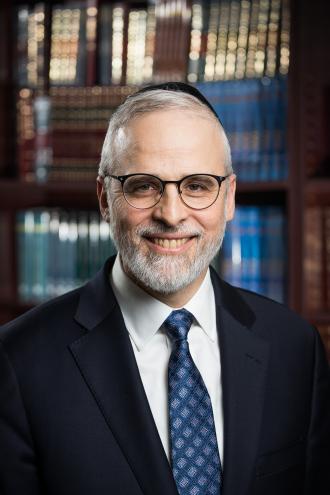Jerusalem, Israel - Jan. 18, 2017 - Israeli President Reuven Rivlin and his wife Nechama Rivlin were presented with the 25th Annual Report of the Child by Vered Vindman, Director-General of the NGO National Council for the Child, on January 16 at Beit Hanasi in Jerusalem. The "Children in Israel Annual 2016" is a 661-page volume filled with charts and distressing statistics. While the number of Israeli children has more than doubled since 1970, the number of services for children has remained the same. It was reported that 839,377 children live in poverty, with 10% of them going to bed hungry.
President Rivlin noted in his remarks, "We have responsibility to the children. The Knesset should go through this report, point by point, and do its job to correct problems. No child should go to sleep hungry." Further the president said, “I believe that children are our future. If we do not provide our children emotional, material, educational and legal resources, and work to protect and support them, we cannot go forward with a clear future."
The Taub Center for Social Policy Studies held a conference in Jerusalem on Poverty Policy at the beginning of December 2016. A day of discussion panels on poverty-related issues had as its closing speaker Israel Prize winner and MK Elie Elalouf, Chair of the Knesset Committee on Labor, Welfare and Health. Elalouf mentioned his humble beginnings, born into poverty in Morocco, the ninth son in a family of ten children. The Knesset Elafouf Report, with two years of findings, concludes more must be done to help poor families.
Adva, Information on Equality and Social Justice in Israel recently reported that the gross monthly income in the lowest decile for a household headed by a salaried employee was NIS 4,644. In other words, in 2015, ten percent of working families were the "working poor."
Security guards, policemen, entry level teachers and other working Israelis barely make enough to support their families. One health issue in the family can cause a financial crisis for bottom- level income families.
Bottom-level working families exist across the social and religious spectrum, in the Israeli periphery and the south, and in communities surrounding Yerushalayim.
Dozens of chesed organizations offer support to Israeli families in need, trying to fill the gap left by government agencies. Recently, BJL accompanied the newly-publicized (and previously private) "Give a Fridge" initiative in a trip around the Pisgat Zev neighborhood. The project, which began ten years ago, provides a stove and/or refrigerator to needy families. Local welfare organizations do not provide appliances as part of their mandate.
After being referred by social workers and municipal agencies, "Give a Fridge" inspects three months of a family's credit records. If there are frivolous purchases of lotto tickets, cigarettes, whiskey or other items, the family is not eligible for assistance. Foundation benefactor, Norman Ciment, insists that home visits are crucial to see a family's true situation. Ciment and his Israeli representative, David Shlesinger, look to see living conditions, including what food is in the old refrigerator. An old, empty or broken appliance that is repaired or replaced with a new one, can give a family support and real boost in morale in a time of need.
Beginning in 2000, Ciment, lawyer and former mayor of Miami Beach, started helping stores along Ben Yehuda Street, during the Second Intifada, when tourism to Israel dropped to a low point. Realizing that working people were having a hard time making ends meet, Ciment started buying appliances locally and distributing them in Sderot and other locations in economic distress.
On our trip around Pisgat Zev, one family had a health crisis which required a parent to stay in hospital with a child undergoing treatment for cancer. Loss of the second income was a serious blow to their finances. One woman was in such a dire state, her landlord allowed her to use his furnishings temporarily. Her situation told to Ciment and Shlesinger with a constant flow of her tears.
Until now the Norman and Joan Ciment Foundation has financed donations alone working with the Jerusalem Municipality. Now looking to serve a wider range of families with more appliances such as washing machines, the "Give a Fridge" Project has a new website, http://www.giveafridge.com/ to allow the public to contribute donations.















